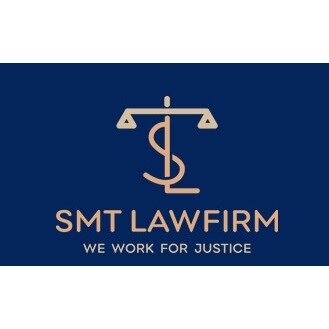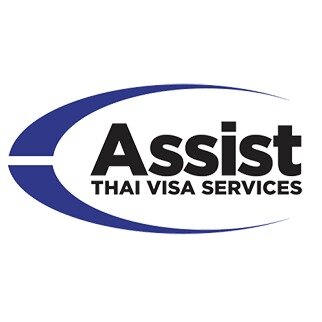About Foreclosure Law in Chiang Mai, Thailand
Foreclosure is a legal process in which a lender attempts to recover the balance of a loan from a borrower who has stopped making payments. In Chiang Mai, Thailand, foreclosure is typically associated with the foreclosure of real estate properties. The process can be complex, involving various legal and financial steps that must be adhered to under Thai law. Chiang Mai, as a popular residential and tourist destination, witnesses a mixture of both local and foreign property ownership, adding layers to real estate transactions and possible foreclosures. It's crucial for those involved to have an understanding of both the legal framework and cultural nuances.
Why You May Need a Lawyer
There are several situations where seeking legal advice regarding foreclosure can be necessary:
- If you are a borrower struggling to make mortgage payments and wish to explore all legal avenues to avoid foreclosure.
- If you are a lender needing to initiate foreclosure proceedings against a borrower who has defaulted on payments.
- If you are a property owner contesting the validity of a foreclosure process initiated against you.
- If you are a buyer interested in purchasing a foreclosed property and need guidance on the legal implications and procedures involved.
In these situations, a lawyer can provide valuable advice, representation, and ensure that your rights and interests are protected throughout the legal process.
Local Laws Overview
Foreclosure law in Thailand, including in Chiang Mai, is governed by the Civil and Commercial Code. Key aspects to be aware of include:
- The requirement for lenders to follow specific legal procedures before they can repossess a property.
- Borrowers have the right to receive a formal notice of foreclosure proceedings.
- There are varying timelines and grace periods depending on the specific terms outlined in the loan agreement.
- Both parties may negotiate to settle the outstanding payments before the completion of the foreclosure process.
- Public auctions are commonly used to sell foreclosed properties, often requiring adherence to strict guidelines.
Frequently Asked Questions
What is the typical process of foreclosure in Chiang Mai, Thailand?
The foreclosure process generally involves notifying the borrower of default, initiating legal proceedings, and potentially culminating in the sale of the property through a public auction.
How long does a foreclosure process take in Chiang Mai?
The timeline for foreclosure can vary greatly, depending on the specifics of the case, such as court schedules and any negotiations or settlements between the lender and borrower.
Can a borrower stop a foreclosure once it's initiated?
Yes, borrowers might have the option to halt foreclosure by settling the outstanding dues, negotiating new terms, or contesting the foreclosure in court, depending on the circumstances.
Are there any alternatives to foreclosure for struggling borrowers?
Yes, alternatives may include loan renegotiation, property sale to repay debts, or entering into a forbearance agreement with the lender.
What legal rights do borrowers have during a foreclosure?
Borrowers have the right to be notified of the proceedings, contest the foreclosure in court, and potentially redeem the property by repaying the owed amounts before auction.
Are there specific laws for foreigners involved in foreclosures in Chiang Mai?
While the foreclosure laws are consistent, foreigners face additional regulations concerning property ownership, which might affect the foreclosure process.
Do lenders need a court order to foreclose on a property?
Yes, lenders typically must obtain a court order to proceed with the foreclosure and sell the property at auction legally.
What happens to occupants of a foreclosed property?
Occupants may be required to vacate the property after the conclusion of legal processes, and often after the property is sold at auction.
Can a foreclosure affect my credit in Thailand?
Yes, a foreclosure can negatively affect a borrower's credit rating, impacting their ability to secure loans or credit in the future.
What should I do if I am interested in buying a foreclosed property?
Prospective buyers should conduct thorough due diligence, possibly using a lawyer, to understand the property's legal status and any outstanding obligations.
Additional Resources
Individuals seeking more information or assistance can consult:
- The Legal Execution Department of Thailand for procedural information.
- Local legal aid clinics or law firms specializing in real estate and foreclosure.
- The Land Department for property-specific details and guidance.
Next Steps
If you require legal assistance regarding foreclosure in Chiang Mai, consider the following steps:
- Consult with a qualified Thai lawyer specializing in real estate foreclosure laws.
- Gather all pertinent documentation related to your property or mortgage.
- Assess your financial situation and explore negotiation possibilities with your lender or borrower.
- Stay informed about your legal rights and upcoming legal procedures.
Approaching the issue with professional guidance ensures that you address foreclosure proceedings effectively and within the scope of the law.
Lawzana helps you find the best lawyers and law firms in Chiang Mai through a curated and pre-screened list of qualified legal professionals. Our platform offers rankings and detailed profiles of attorneys and law firms, allowing you to compare based on practice areas, including Foreclosure, experience, and client feedback.
Each profile includes a description of the firm's areas of practice, client reviews, team members and partners, year of establishment, spoken languages, office locations, contact information, social media presence, and any published articles or resources. Most firms on our platform speak English and are experienced in both local and international legal matters.
Get a quote from top-rated law firms in Chiang Mai, Thailand — quickly, securely, and without unnecessary hassle.
Disclaimer:
The information provided on this page is for general informational purposes only and does not constitute legal advice. While we strive to ensure the accuracy and relevance of the content, legal information may change over time, and interpretations of the law can vary. You should always consult with a qualified legal professional for advice specific to your situation.
We disclaim all liability for actions taken or not taken based on the content of this page. If you believe any information is incorrect or outdated, please contact us, and we will review and update it where appropriate.















